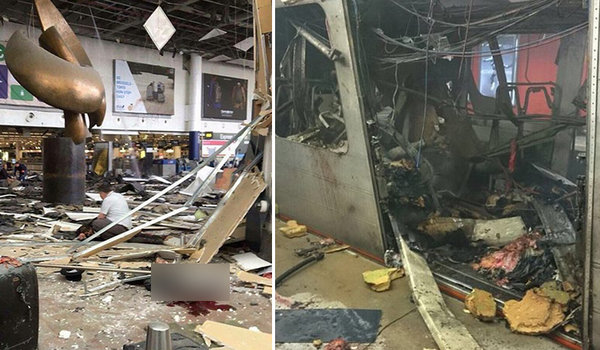Why Belgium is Ground Zero for European Jihadis
Several factors help explain why Brussels, the political capital of Europe, has emerged as the jihadist capital of Europe.
Why Belgium is Ground Zero for European Jihadis
Soeren Kern | Gatestone Institute | March 23, 2016
The terrorist attacks on the airport and metro in Brussels are casting a spotlight, once again, on Belgium’s ignominious role as a European haven for jihadists.
Several distinct but interconnected factors help explain why Brussels, the political capital of Europe, has emerged as the jihadist capital of Europe.
Large Muslim Population
The Muslim population of Belgium is expected to reach 700,000 in 2016, or around 6.2% of the overall population, according to figures extrapolated from a recent study by the Pew Research Center. In percentage terms, Belgium has one of the highest Muslim populations in Western Europe.
In metropolitan Brussels — where roughly half of Belgium’s Muslims currently live — the Muslim population has reached 300,000, or roughly 25%. This makes Brussels one of the most Islamic cities in Europe.
Approximately 100,000 Muslims live in the Brussels district of Molenbeek, which has emerged as the center of Belgian jihadism.
Parallel Societies
Belgium’s radical Islam problem originated in the 1960s, when Belgian authorities encouraged mass migration from Turkey and Morocco as a source of cheap labor. They were later followed by migrants from Egypt and Libya.
The factories eventually closed, but the migrants stayed and planted family roots. Today, most Muslims in Belgium are the third- and fourth-generation offspring of the original migrants. While many Belgian Muslims are integrated into Belgian society, many others are not.
Growing numbers of Belgian Muslims live in marginal districts — isolated ghettos where poverty, unemployment and crime are rampant. In Molenbeek, the unemployment rate hovers at around 40%. Radical imams aggressively canvass the area in search of shiftless youths to wage jihad against the West.




